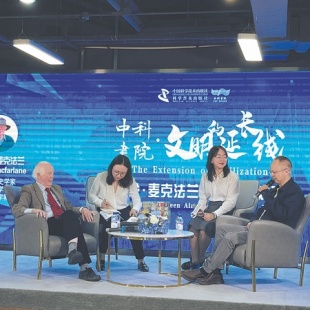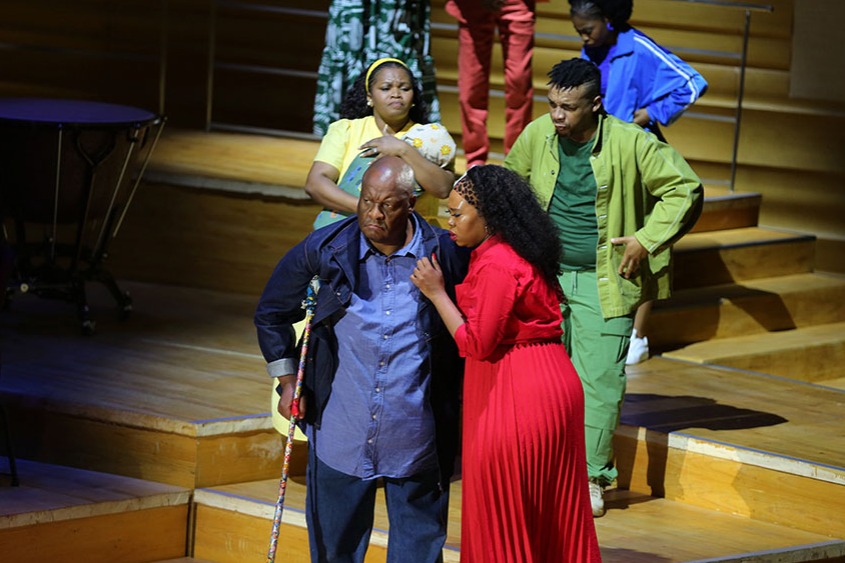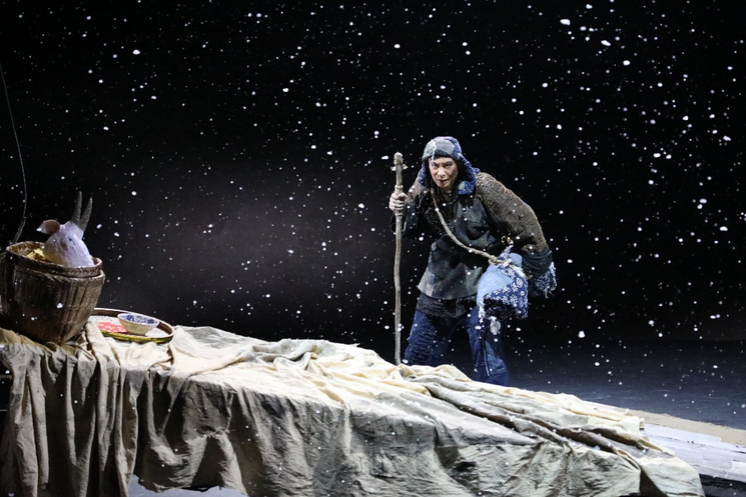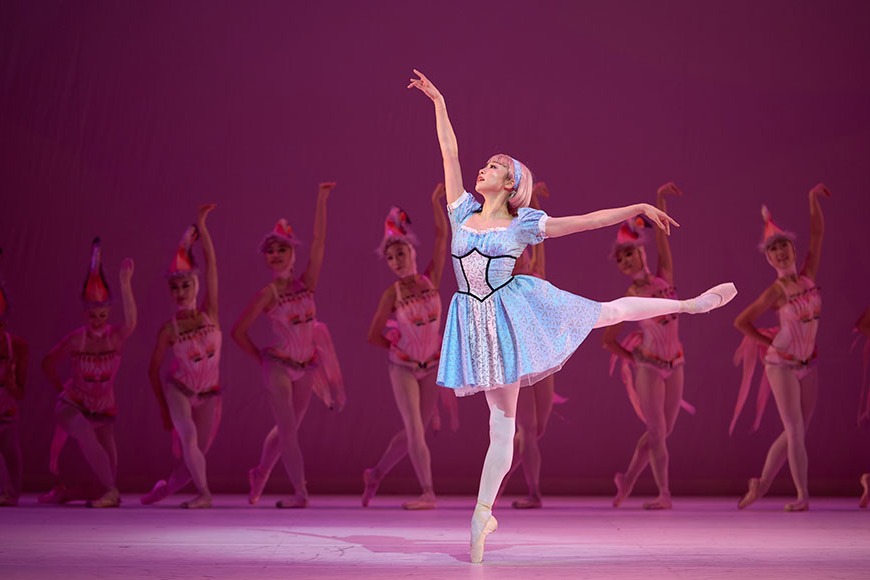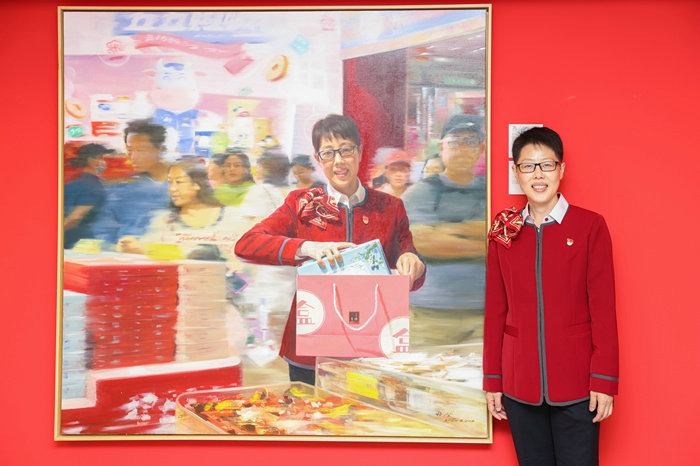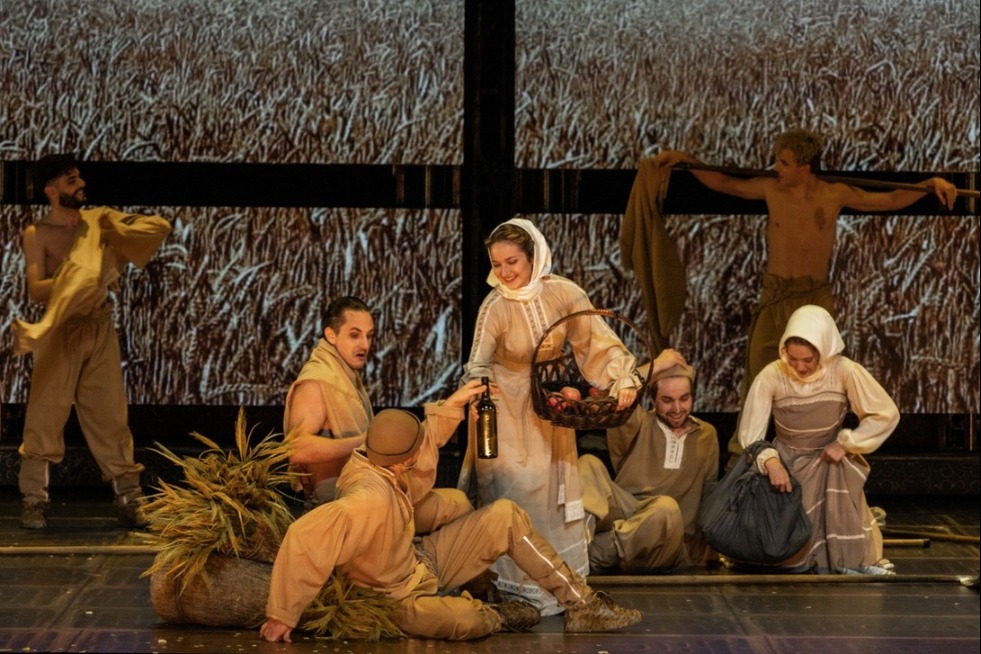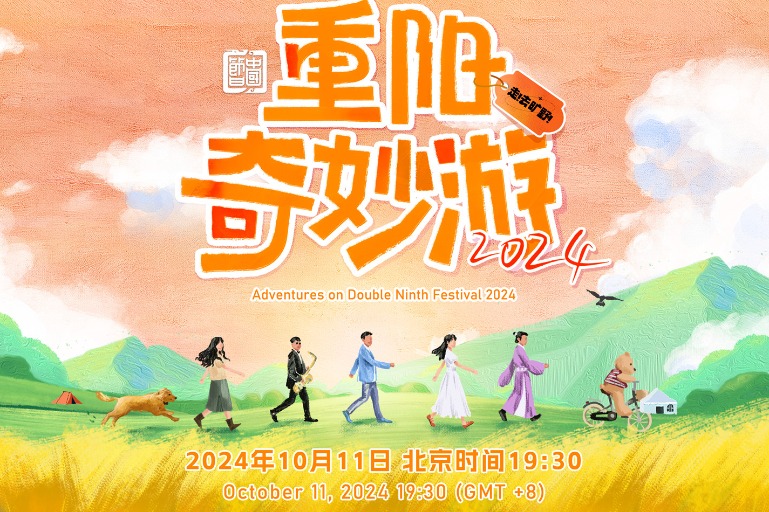Cultural scholars engage in dialogue

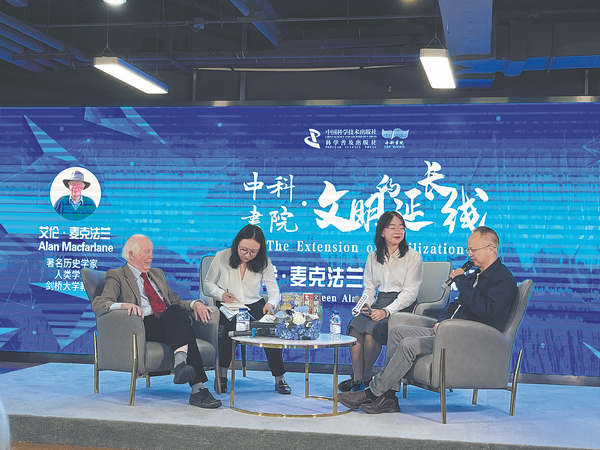
On a recent visit to China, British anthropologist and historian Alan Macfarlane and Chinese scholar Yu Shicun exchanged ideas about topics including cultural identity, "the other", and the role of time in the shaping of a civilization in a dialogue in Beijing.
Macfarlane, 81, described his cultural identity as "a world citizen with British characteristics", as he was born in India and grew up in the United Kingdom before leaving to spend decades living in Nepal, Japan and China.
If people can realize that "we should not be narrowly based in just one culture or identity, and we share so much more with other civilizations and cultures, then the world will become a much more peaceful, harmonious and pleasant place", he said.
Talking about cultural identity, Yu identified himself as a scholar living in China for half a century.
He translated a 2,000-year-old Confucian ideal into a modern context. "To use a unified global timing system and products from different countries, while maintaining Chinese cultural elements, to embrace the entire creation of the human race, I think that is Confucius' idea of cultural identity and also that of modern Chinese people," he said.
When it comes to "the other", Macfarlane said that through his study and teaching in the field of anthropology and his personal experience of different societies, he has learned that the binary view that takes another culture as "the other", or as a threat, is wrong and causes trouble. He said the Chinese have promoted harmonious coexistence with other cultures for more than 2,000 years, which is an idea he admires.
Yu agreed, saying that the Chinese prefer to treat other countries as brothers and sisters.
However, he said, the Chinese attitude toward the relationship between Chinese culture and other cultures has been changing over the years. The generations since 1919 looked to Western and Soviet Russian cultures as China's teachers, rather than as their brothers or sisters, he said.
"Now our relationship with other cultures has changed. For today's young people, Chinese and Western cultures are equal," Yu said.
"It's like we Chinese have left home for 100 years, and now many people want to return to see whether there are great things here, and take them as a reference to see what's going on in different countries, and whether we can share our things with them," he said.
A Chinese person lives in two worlds — the modern and the traditional — which is confusing sometimes, but the difference between them is also where the Chinese creativity and advantage lies, Yu said.
yangyangs@chinadaily.com.cn


